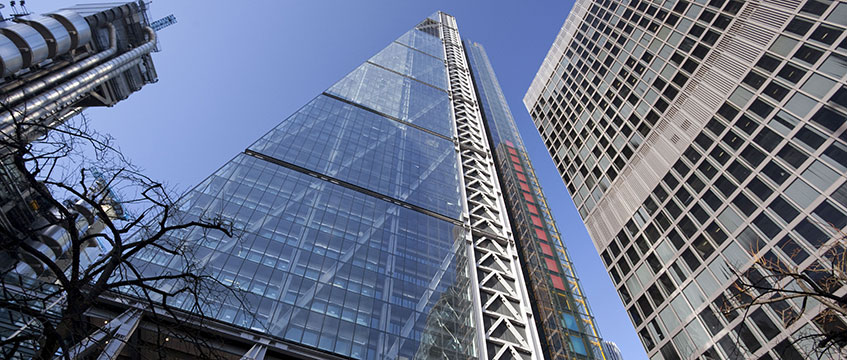Chinese and Hong Kong investors have splashed more than $41.8bn (£32.5bn) on international property in 2017 so far, a near-record level reached despite the Chinese government’s tightened capital controls.
Research compiled by Real Capital Analytics reveals that the 20 most active investors from China and Hong Kong accounted for $7bn of transactions.
They focused their attention mainly on the US, where they have collectively spent just over $4.1bn in the first eight months of the year. In the UK they spent just over $3.6bn, including CC Land’s £1.1bn purchase of the Leadenhall Building, EC3, also known as the Cheesegrater, in May.
A further £1.3bn of investment is heading to the City with the purchase of the Walkie Talkie, 20 Fenchurch Street, EC3, due later this month.
The two largest Chinese overseas investors have both recently come under their government’s scrutiny as it looks to restrict outbound investment and its potential impact on the country’s currency reserves.
Anbang tops the list, having spent more than $2.3bn, buying a residential portfolio in Japan from Blackstone. Coming in close second with a total spend of $2.6bn is HNA Group, which made the bulk of its investment in the US from the $2.2bn purchase of 245 Park Avenue in New York.
Hong Kong-listed CC Land was the third most-active investor from the region as a result of its Cheesegrater purchase.
Tom Leahy, senior director of Real Capital Analytics, said the total investment figure so far this year is close to a record level.
He added: “The latest numbers showing capital outflows from China and Hong Kong contradict some of the noise about a slowdown due to Chinese capital controls.”
The figures also show that while the US received the most investment from China and Hong Kong as a region, the UK in general and London specifically was the most popular for Hong Kong buyers.
Leahy said: “London continues to be the target market for players from Hong Kong. More than $5bn of closed and pending transactions are on the books in 2017, and the city accounts for 50% of all cross-border acquisitions in 2017 excluding China.
“As yet there is no sign that these players are slowing their activity in the City, which must be seen as a long-term vote of confidence for the market’s future in a post-Brexit world.”
This tallies with EG research into the ownership of London’s office stock showing that Asian buyers are the third most-active investors in the UK capital by sq ft and now own the most City core stock (16%) of all overseas investors.
UK investors still own most London offices
Graham Shone, UK senior analyst
Cash from around the world has poured into the capital’s business districts in recent years, but domestic owners still rule the roost.
Looking at office ownership by building size, UK landlords account for 61% of all stock in central London, with North American owners coming in second at 11%, followed by 9% accounted for by Asian firms.
Global demand for London offices has been heavily underlined this year by the purchases of the Cheesegrater, EC3, and the Walkie Talkie, EC3, by foreign investors for more than £1bn each. However, behind these recent deals exists a broad base of in situ overseas landlords.
Stick a pin in a world map and there is a one-in-three chance you’ll hit a nation-state that has some ownership interest in central London offices, with 65 individual nations represented in our analysis.
The most heavily foreign-owned section of London is the Docklands, underpinned by Qatar Investment Authority and Blackstone, which jointly hold multiple assets as part of their ownership of Canary Wharf Group.
Domestic ownership in the Docklands market is at just 23%, in sharp contrast to the West End, where Grosvenor, British Land, and the Crown Estate’s multiple large-scale holdings increase UK-based office ownership to more
than 75%.
Domestic owners also hold the majority of City core stock – but by the slenderest of margins, 51%.
With ambitious plans from active investors to acquire more London trophy assets, it is almost certain that by this time next year, the City of London will join the Docklands in being majority owned by overseas players.
To send feedback, e-mail emily.wright@egi.co.uk or tweet @EmilyW_9 or @estatesgazette











